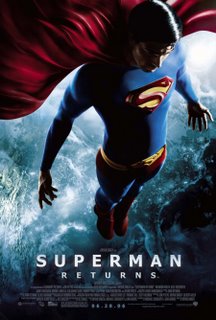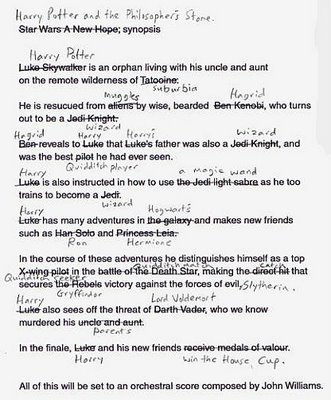Superman-3, African Americans-0, 30 June 2006
Author: Christopher Priest from the United States
There is not one black person in even a single frame of this film. Not an extra, not a cameo, not anybody pushing a broom or driving a cab. This world, this antiseptic, Disneyland world, is a world of white people. A Republican fantasy where Ronald Reagan is still president and Newt Gingrich runs the House of Representatives. This is a thoroughly whitewashed universe of white people where blacks and other minorities may be a passing blur at best (and that's giving Singer the benefit of the doubt. Frankly, I did not see any black people and, yes, I was looking for them). Like President Bush's election campaigns, Superman Returns completely writes off black America, figuring, perhaps correctly, we wouldn't be interested in the film in the first place.
Superman Returns is a film that is not about us, that doesn't engage us, that doesn't speak to black America in any meaningful way. It insults my intelligence to suggest Director Singer or Warner Bros. executives didn't notice there were no blacks in the film, therefore I assume they did, in fact, notice, and decided it made no difference since we were likely not going to see it anyway.
Additionally, I became uncomfortable and then irritated by the ubiquitous messianic iconography so blatantly employed in Superman Returns. In journalism school, I was once taught that, if you're going to plagiarize something, the Bible is the best source for free material. Singer's ham-fisted attempts to fit Routh with a crown of thorns made me uncomfortable as I thought it was, first and foremost, bad writing, but also a long and clumsy way to go to hammer us with an awkward and somewhat offensive cliché. My mind started wandering out of the plot as, instead, I began debating with myself whether or not I should be offended by the cheap-shot messianic imagery heavily borrowed from The Passion of The Christ.
Out of 611 comments so far, only one has ranted about the ideology of Superman. Interesting, I guess.




